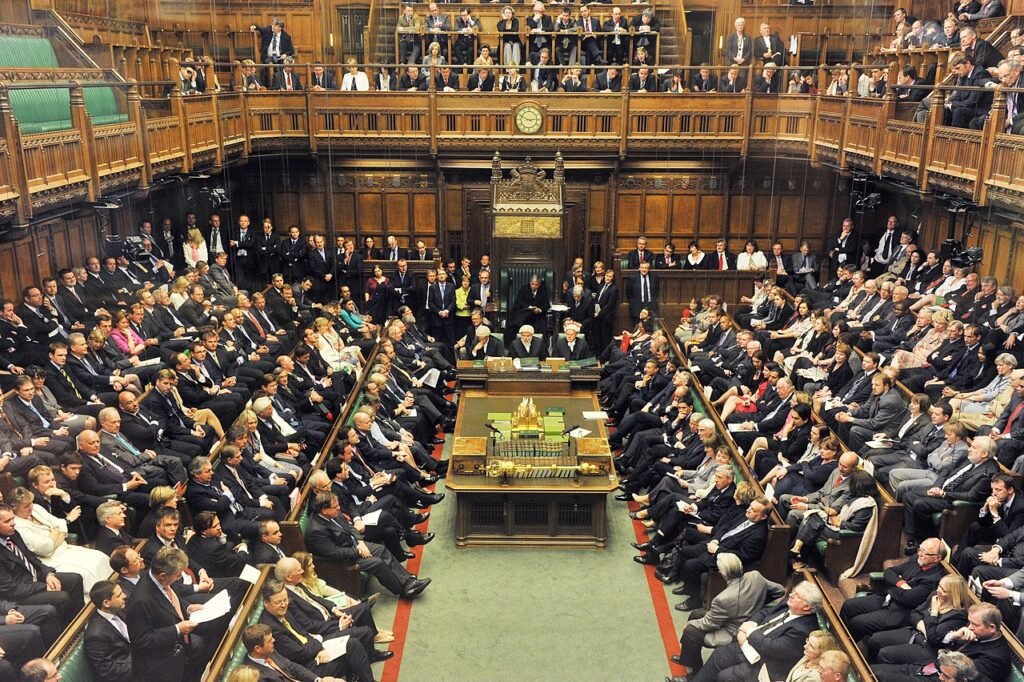The House of Commons in the UK plunged into chaos during a vote on the Israel-Hamas conflict, with the Scottish National Party (SNP) staging a walkout and Prime Minister Rishi Sunak’s Conservative Party abstaining from voting.
The turmoil erupted in the House of Commons after Speaker Lindsay Hoyle permitted both Keir Starmer’s Labour Party and Sunak’s Conservatives to propose amendments to the SNP’s motion for a cease-fire in Gaza. Although the differences between the parties’ stances were slight—all aimed for an end to the conflict but with differing conditions—some Members of Parliament (MPs) were incensed by what they perceived as a procedural bias toward Labour.
Hoyle’s decision allowed Starmer to circumvent a potential rebellion within his party by enabling his MPs to support his carefully worded proposal instead of the SNP’s language.
For Starmer, the challenge has been to maintain unity within Labour since Hamas’s attacks in October, as he seeks to balance the party’s historic support among British Muslims with efforts to distance it from allegations of antisemitism under his predecessor while positioning Labour as a viable government-in-waiting. Despite Labour’s substantial lead in polls ahead of an anticipated UK election later this year, the Speaker’s controversial maneuver tarnished what could have been a triumph for Starmer.
Hoyle, amidst calls for his resignation from some SNP MPs, admitted his regret over the situation, acknowledging the fallout from his actions.
However, beyond the procedural controversy, there lurked deeper political motivations—a recurring theme in Westminster’s dynamics. A similar SNP motion brought before Parliament in November triggered a rebellion within Labour’s ranks, undermining Starmer’s leadership. Thus, the pressure on Starmer to devise a formulation that would retain support within his party ahead of Wednesday’s vote was intense. His solution was to call for an immediate cease-fire in Gaza while advocating for the release of hostages held by Hamas and the revitalization of the peace process.
However, a procedural hiccup threatened to derail Starmer’s strategy. Under convention, opposition parties cannot amend a proposal put forth by another opposition party if the government also attempts to do so. This scenario presented an opportunity for the SNP and Conservatives to corner Labour into a difficult position, as Labour MPs would have to choose between the SNP’s and the Conservatives’ positions if Starmer’s motion were not put to a vote. Hoyle’s intervention altered the course of events by prioritizing consideration of Starmer’s proposal over the SNP’s—a decision met with vehement opposition from the SNP.
The Conservatives, by abstaining from the vote, avoided the dilemma of having to vote against a cease-fire, regardless of whether it was proposed by Labour or the SNP, thus sidestepping the risk of supporting an opposition party.
Despite the disarray in the House of Commons, the focus should remain on the grave situation in Israel and Gaza. Amidst debates over procedural matters and party politics, the human cost of the conflict cannot be overlooked. The recent warning from Israel of a potential offensive in Gaza next month underscores the urgent need for a cease-fire to prevent further bloodshed and suffering.
Labour’s call for an immediate cease-fire represents a crucial step toward addressing the crisis, albeit with slight differences from the government’s position. In the lead-up to the UK’s upcoming election, where every difference is an opportunity for political point-scoring, it is imperative to prioritize the humanitarian imperative over partisan interests.
As the international community grapples with the Israel-Hamas conflict, it is incumbent upon political leaders to rise above the fray and work towards a peaceful resolution that safeguards the lives and well-being of all affected by the violence.
